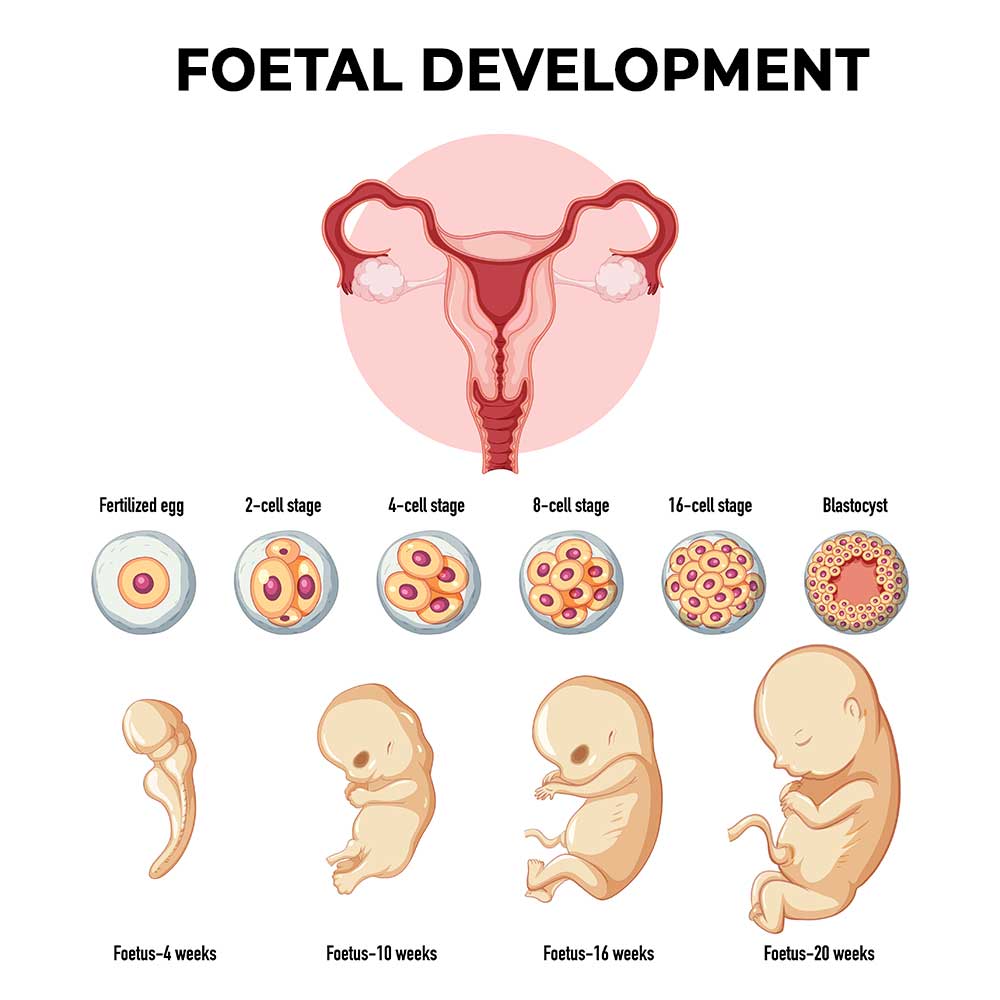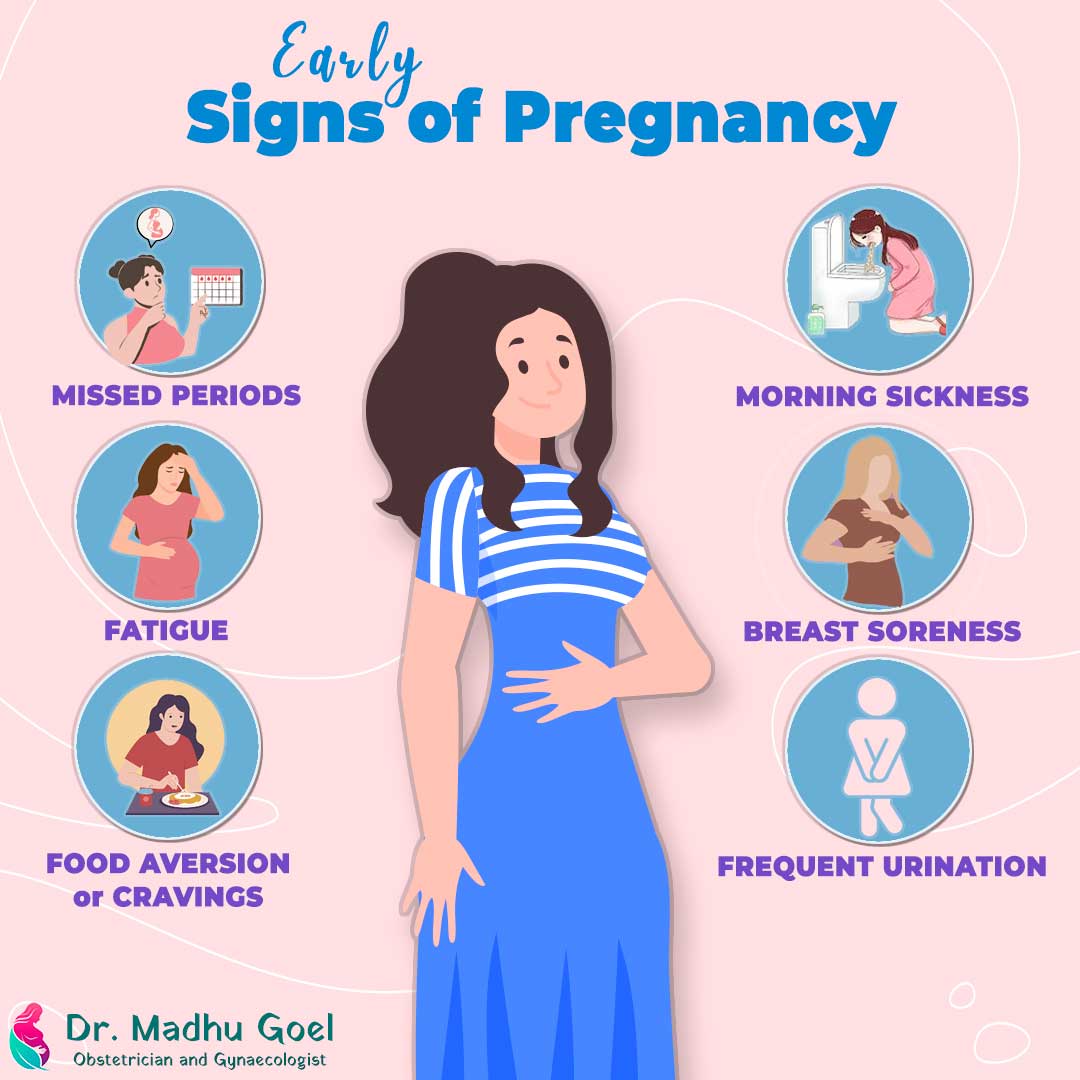The First Trimester: Understanding the Early Stages of Pregnancy
Have you ever wondered what happens inside your body during those crucial months of pregnancy? The first trimester of pregnancy, often shrouded in mystery and anticipation, is a time of immense change for both mother and baby.
This blog series, focusing on the pregnancy trimesters, will be your one-stop guide to navigating this exciting, yet sometimes overwhelming, period.
We’ll delve into the fascinating world of fetal development, witnessing the transformation from a fertilized egg to a tiny human taking shape. We’ll explore the concept of gestational age and understand how we doctors track your baby’s growth.
Most importantly, we’ll discuss the significance of prenatal care during this critical time. Ensuring a healthy pregnancy journey for both you and your developing baby.
Also Read:
- First Trimester: Strategies For Common Pregnancy Symptoms
- Navigating The First Trimester: Your Body, Your Baby
- Early Pregnancy: Strategies for Common Pregnancy Symptoms
Understanding Gestational Age: How We Calculate Pregnancy
What is Gestational Age?
Have you ever wondered how doctors determine how far you are in your pregnancy? The answer lies in gestational age. It refers to the length of your pregnancy, typically weeks, from the first day of your last menstrual period (LMP) to the current date. This estimated timeframe is crucial in monitoring your baby’s development throughout the pregnancy.
How is Pregnancy Calculated?
There are two main ways to calculate gestational age:
- Using your Last Menstrual Period (LMP): This is the most common method. Doctors typically add 280 days (approximately 40 weeks) to the first day of your LMP to estimate your due date. However, this method assumes a 28-day menstrual cycle with ovulation around day 14. Since cycles can vary, this estimate might not be perfectly accurate.
- Ultrasound Measurements: During prenatal ultrasounds, especially in the first trimester, doctors can measure specific parts of the developing baby, such as the crown-rump length. By comparing these measurements with established growth charts, they can provide a more precise estimate of gestational age.

Why is Gestational Age Important?
Knowing your gestational age helps your doctor:
- Track your baby’s development: Doctors can identify potential concerns by comparing your baby’s size and maturity to expected milestones for each gestational age.
- Schedule prenatal care: Certain tests and screenings are recommended at specific points throughout pregnancy. Gestational age helps ensure you receive these interventions at the most appropriate time.
- Estimate your due date: While not always exact, your due date serves as a general timeframe for when your baby is expected to arrive.
Understanding gestational age empowers you to participate actively in your pregnancy journey.
The Miracle of Conception and Implantation: The First Steps of Life
The first chapter of pregnancy begins with a wonderous event – conception. Deep within the fallopian tubes, a single sperm fertilizes an egg, igniting the spark of life. Within a day, this fertilized egg, called a zygote, begins a rapid process of cell division. As it travels down the fallopian tube towards the uterus, the zygote transforms into a blastocyst, a microscopic ball of cells with the potential to become a human being.

From Tiny Spark to Building Blocks: Weeks 1-4 of Fetal Development
The first trimester holds a secret magic. Even though you might not yet suspect pregnancy, a symphony of development is underway within your body. These first four weeks lay the foundation for your baby’s incredible journey.
Week 1: A Microscopic Miracle (Fertilisation)
Technically, pregnancy starts at conception, which can occur anywhere from weeks 1 to 2. During this week, a sperm fertilizes an egg, creating a single-celled zygote. This microscopic miracle begins dividing rapidly as it travels down the fallopian tube.
Weeks 2-3: Implantation and Early Growth (Gestational Sac)
The zygote develops into a blastocyst, which is a hollow sphere made up of cells. Around day 6, implantation occurs as the blastocyst embeds itself within the uterine lining. This crucial connection allows the blastocyst to receive nourishment from the mother’s blood. Amniotic and yolk sacs develop for protection and sustenance.
Week 4: The Blueprint for Life (Neural Tube)
The tiny embryo develops three distinct cell layers, eventually forming all the organs and tissues of your baby’s body. Crucially, the neural tube, which will become the brain and spinal cord, begins to be created this week.
Coping With Common First Trimester Discomforts
The first trimester can be a beautiful yet bumpy ride. Your body is working overtime to nurture new life, which can bring on a wave of unwelcome companions like nausea, fatigue, and breast tenderness. But fear not, mama-to-be! Here are some tips to navigate these discomforts with grace:
Conquer the Morning Sickness
Morning sickness, a misleading name that can strike anytime, is a foe for many.
- Eat small, bland snacks like crackers, rice, and bread throughout the day instead of large meals.
- Stay hydrated and drink plenty of water. Dehydration can make nausea worse.
- Get plenty of rest. Fatigue can intensify feelings of sickness.
- Try prenatal vitamin brands with minimal iron, as iron can irritate the stomach. You can also ask your doctor about prescription anti-nausea medication if your morning sickness is severe.

Fatigue? Fight Back with Rest
Feeling wiped out is a common first-trimester complaint. Listen to your body! Prioritize sleep, hitting the hay earlier and embracing naps whenever possible. Gentle exercise like walking or yoga can be a surprising energy booster. Don’t be afraid to delegate tasks like cleaning or cooking to your support system. Remember, creating a tiny human is hard work – rest is essential!
Tame Tenderness
Hormonal shifts can cause discomfort in the breasts. To alleviate this, wear a well-fitted, such as a sleep bra, sports bra, or a supportive brassiere. Additionally, opt for loose-fitting cotton clothes.
Remember, self-care is your superpower! Focus on a healthy diet, stay hydrated, and prioritize rest. Most discomforts usually ease as the body adjusts.
Regular doctor visits
Seeing your doctor regularly during the first trimester is crucial for monitoring your health and the health of your developing baby. Most doctors recommend monthly prenatal check-ups during the first trimester. At these visits, your doctor will check your weight and blood pressure, conduct specific tests, and use a Doppler to listen to the fetal heartbeat. Don’t hesitate to ask your doctor any questions or bring up any concerns you may have.
Taking prenatal vitamins
When you find out you’re pregnant, take a prenatal vitamin. Prenatal vitamins contain folic acid, calcium, iron, and other essential nutrients to support your baby’s development. Getting enough folic acid during the first trimester is especially important for preventing neural tube defects.
Limiting risks
Avoiding anything that could risk your pregnancy during the first trimester is essential. This includes smoking, drugs, alcohol, hot tubs, saunas, x-rays, and sources of radiation.
The first trimester is a time of significant adjustments but also big rewards. Focusing on self-care essentials will help you have a happy, healthy first trimester and beyond.
Also Read:
- Welcoming the Second Trimester of Pregnancy: All You Need to Know
- Second Trimester Symptoms: What to Expect and How to Ensure a Healthy Pregnancy
Conclusion
The first trimester of pregnancy, shrouded in mystery and anticipation, is a crucial foundation for your pregnancy journey. This guide explored fascinating fetal development, from conception to neural tube development. We discussed gestational age, a tool for tracking your baby’s growth, and the importance of prenatal care for you and your developing baby. Remember, self-care, regular doctor visits and prenatal vitamins are your allies for a healthy first trimester. Embrace the changes and enjoy this particular time!
Our Digital Imprints:
Dr. Madhu Goel
Senior Consultant Obstetrician and Gynaecologist
Director, Fortis La Femme
I am passionate about women’s health. With expertise in managing high-risk pregnancies, infertility, and various gynaecological issues, I strive to provide compassionate care. I am committed to ensuring the well-being of my patients. Follow me for insights and updates on women’s health.
Get Connected to my Newsletter
“Health Hub”: Women’s Health & Wellness



